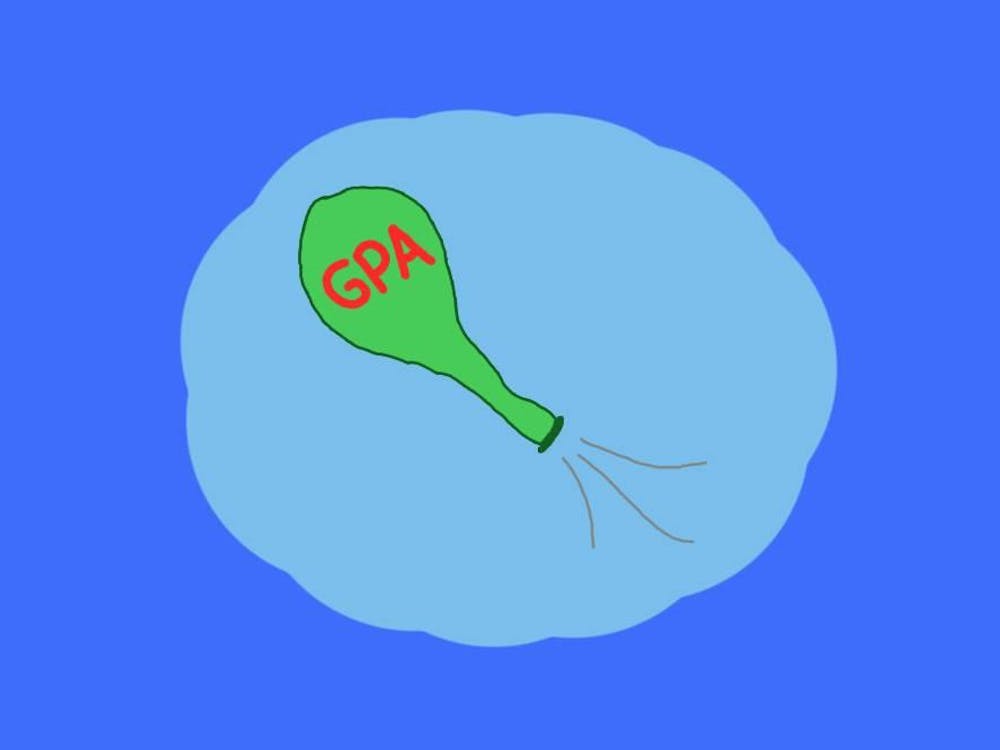AS THE millennial craze moves into its final stretch this month, marketing geniuses scramble to launch the final phases of advertising campaigns targeting every possible product and consumer population. You can wake up in the morning to a bowl of Millennios, enjoy Millennium Spaghetti-Os for lunch and top it off with a Millennium Twinkie for dessert. I'm curious ... is the cream injected in the shape of the numbers 2-0-0-0?!
Then, you can take a drive in your brand new Toyota, guaranteed to continue running even if the entire city of New York loses power due to Y2K. This year, the media and advertising gurus normally accused of commercializing the December holiday season have a new target. The impending millennial event and accompanying apocalyptic panic creates an opportunity that only surfaces once in 1,000 years.
Americans have a longstanding apocalyptic obsession. Perhaps decades of hype finally have created an audience ripe for the media blitz that began well before we entered 1999. In the 1840s, the Millerites - an American religious sect -- followed the teachings of William Miller, who claimed to have calculated the exact date of the world's end.
Using numerical indicators from the Book of Revelations, Miller used a complex series of equations to arrive at November 1843 as the date of the promised apocalypse. This movement, based heavily on religious and biblical sources of authority, contrasts with the secular commercial focus of the current millennial craze. Today, we worry more about the implications of Y2K and less about an impending Last Judgment from God.
The millennium, for us, means possible technological failures, food shortages or loss of power. We buy the millennium issues of Vogue and George to determine what will be "in" as we enter the next 1,000 years. Martha Stewart has a perfect millennium party all planned out for you. Purchase her magazine to find out how you, too, can welcome the millennium in style.
In contrast with other apocalyptically charged moments in American history -- the Great Depression, the Cold War and the turbulent 1960s, for example -- our millennial moment lacks a true impetus for apocalyptic thinking. Today, media pressures and commercial gimmicks -- rather than a shift in the social, economic or political climate -- cause us to look upon January 1, 2000 with, albeit concealed, trepidation.
As we approach the new millennium, the prospect of facing so many zeros in the new year's date lead some to contemplate the possibility of an apocalyptic event based on massive technological failures. The growing sentiment seems to reflect indifference toward the supposed Y2K problem, but I bet we'll see an uncharacteristic rise in bottled water and non-perishable food sales just before the new year. You can never be too prepared, after all, and besides ... what if they're right?
A recent -- and painfully poor -- made-for-TV movie asked that very question as it analyzed the possible problems associated with widespread computer failure across the United States. This season's "X-Files" premiere -- a millennial event in two installments -- played up the series' ever-present apocalyptic theme to an even greater extent.
Even as Mulder and Scully face new unsolved and often unbelievable FBI cases each week, the powers of evil at work in their world conspire with extra-terrestrial life. After all, aliens are waiting in the wings to take over the earth. They're just holding out to seize the right millennial moment.
Of course, the artificially intelligent colonizers of earth in "The Matrix" already have seized their moment. They've capitalized on the inferior position of man to create a race of artificial life forms supported by human energy. Free will remains a distant memory in this world, as human beings remain trapped inside womb-like pods throughout their existence, living their lives through virtual reality computer programs.
Though most of us seem nonchalant about the approaching new year, the media and the advertising and entertainment industries have another agenda. Creating a flurry of activity over the passage into a new millennium (I've given up trying to convince people that won't happen until Jan. 1, 2001) means more people will make more elaborate plans to bring in the new year. And that means even more revenue for the industries enticing you to embrace the millennial craze.
Though Martha doesn't include a recipe for evading the grips of this madness in her "How to throw the perfect Millennium Celebration" handbook, don't panic. To mark this year's monumental passage into the new year, add one part good friends, one part good food and one part good champagne. Stir until well-blended, chill for several hours and enjoy!
(Amy Startt's column usually appears Wednesdays in The Cavalier Daily.)




